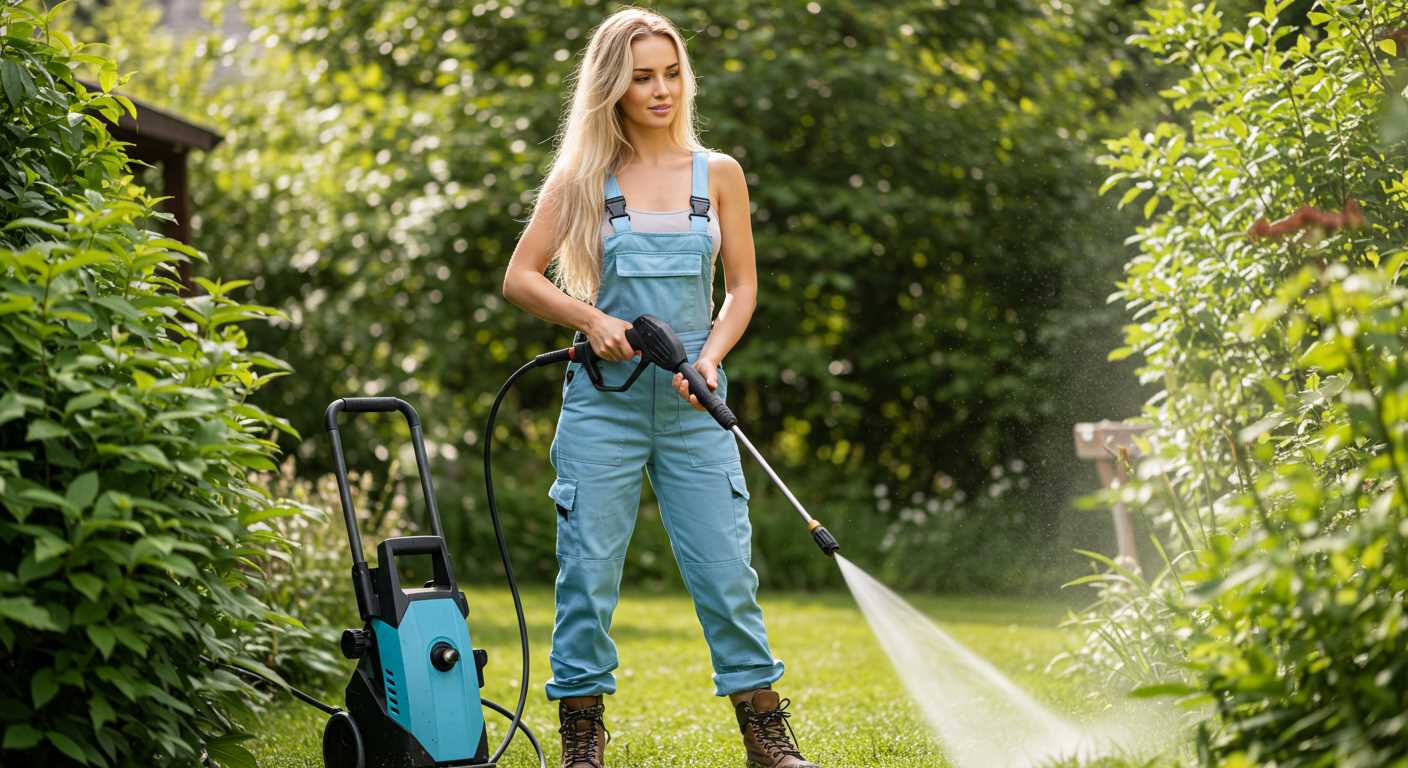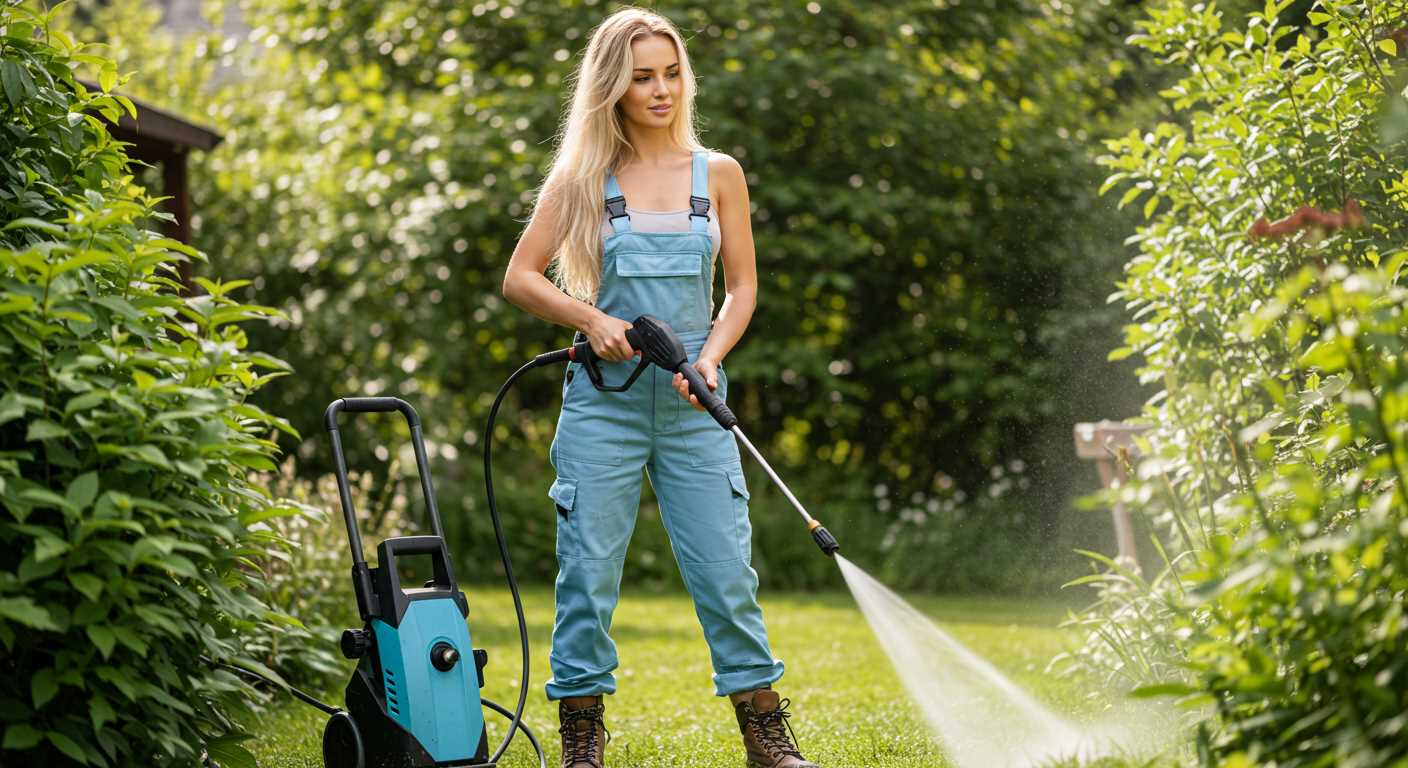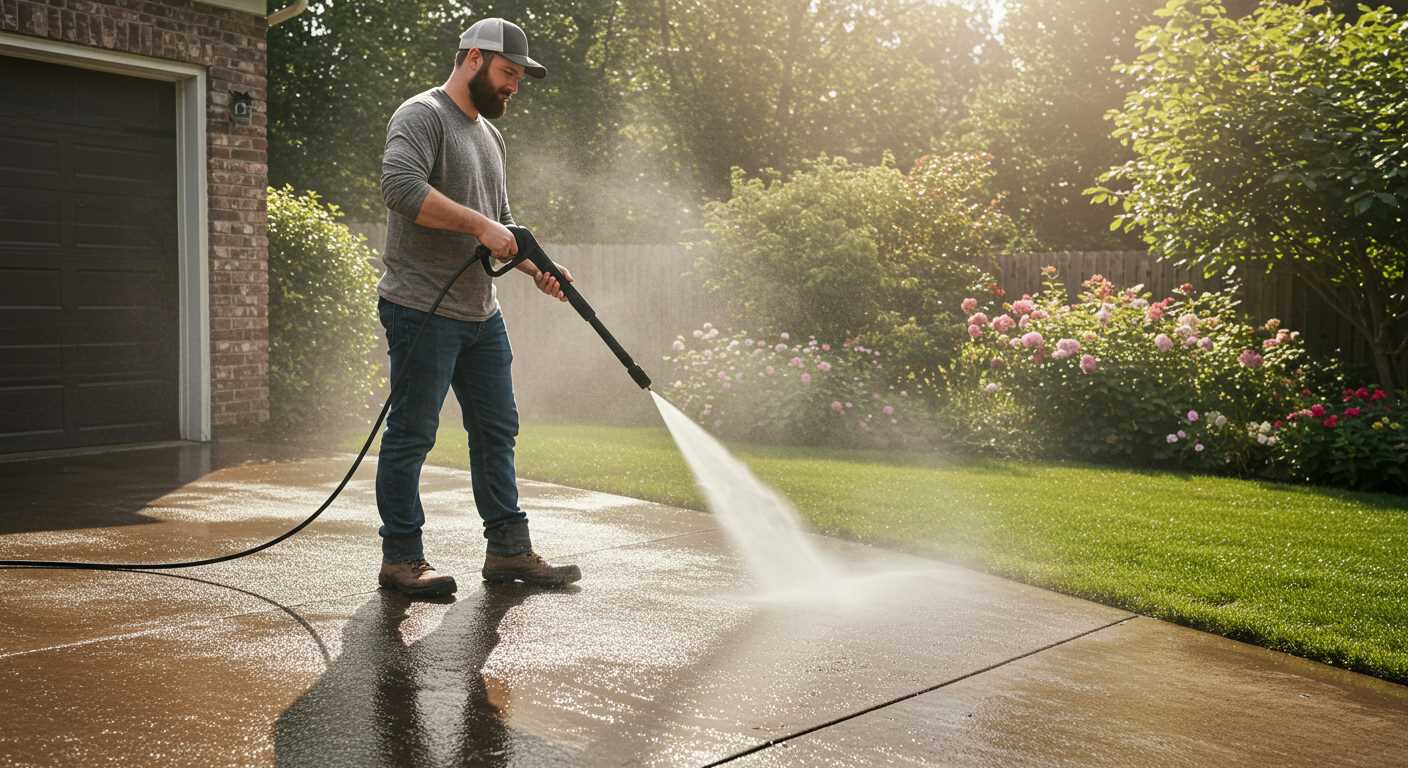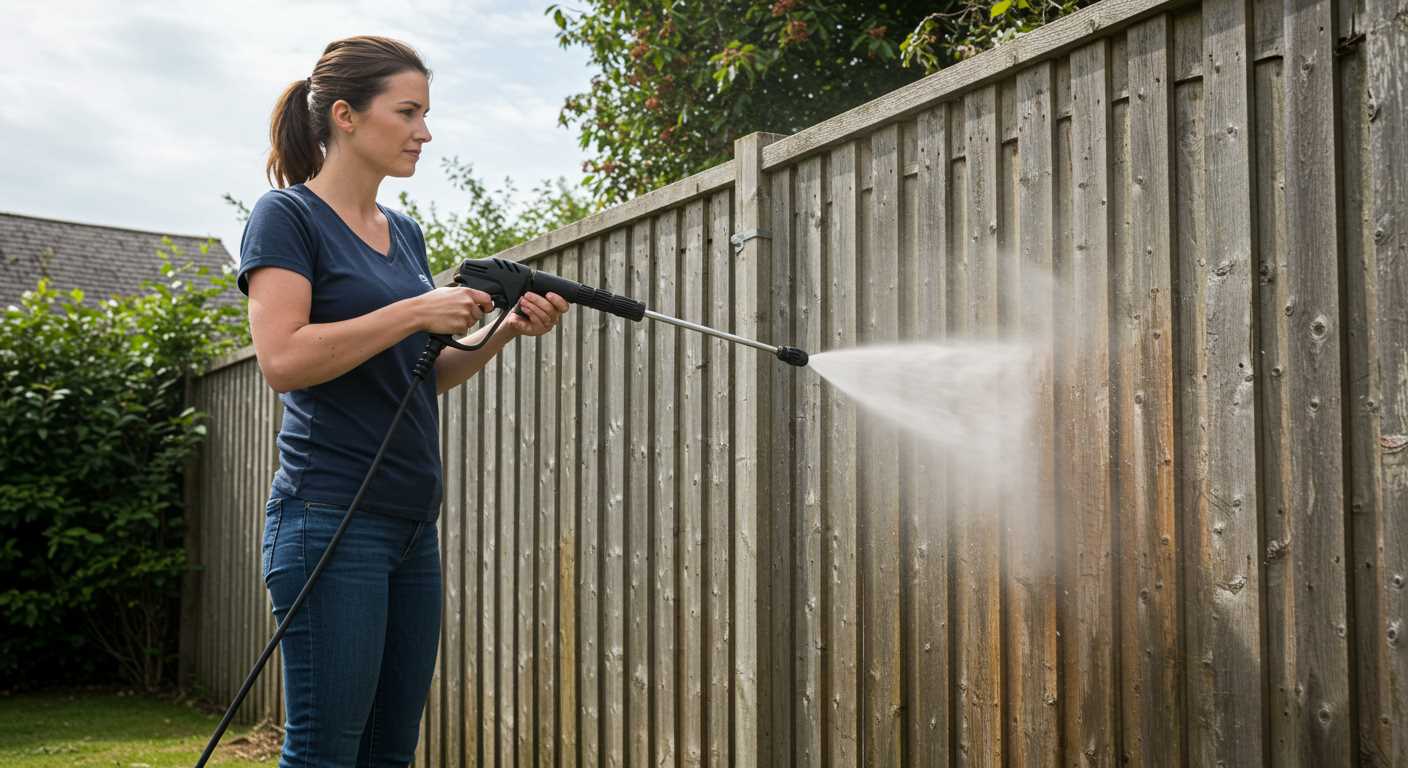




As a homeowner, I often find myself searching for effective ways to maintain the outdoor spaces of my property, particularly the slabs that can easily accumulate dirt and grime. Over time, I’ve discovered that keeping these surfaces clean doesn’t always require expensive equipment or harsh chemicals. In this article, I will share my insights on the best natural solution for cleaning slabs without the need for a pressure washer.
This article is aimed at anyone who wants to restore the beauty of their patios, driveways, or walkways without resorting to industrial cleaning methods. Whether you’re an eco-conscious individual or simply looking for a cost-effective way to spruce up your outdoor areas, you’ll find valuable tips and tricks here.
I’ll explore various natural cleaning agents that are not only effective but also safe for the environment. You’ll learn how to create simple cleaning solutions using common household ingredients, as well as the best techniques for applying them to achieve maximum results. By the end of this article, you’ll be equipped with the knowledge to clean your slabs naturally and efficiently, leaving your outdoor spaces looking fresh and inviting.
Utilising Baking Soda for Effective Stain Removal
Baking soda, a versatile and eco-friendly cleaning agent, has gained popularity for its ability to tackle tough stains on outdoor slabs. This natural substance, known for its mild abrasiveness and alkaline properties, can effectively lift grime, grease, and other unwanted marks from surfaces without the need for harsh chemicals or equipment.
When used correctly, baking soda can restore the appearance of your slabs while being gentle on the environment. Its chemical composition allows it to break down stains, making it an ideal choice for maintaining the cleanliness of patios, pathways, and driveways.
How to Use Baking Soda for Cleaning
To achieve the best results, follow these simple steps:
- Prepare a Paste: Mix baking soda with water to create a thick paste. The consistency should be similar to toothpaste.
- Apply to Stains: Spread the paste generously over the stained areas of the slab, ensuring full coverage.
- Let it Sit: Allow the paste to sit for at least 15-30 minutes. This waiting period enables the baking soda to penetrate the stain.
- Scrub the Surface: Using a stiff-bristled brush, scrub the stained areas gently. The mild abrasiveness of the baking soda will help lift the stains without damaging the surface.
- Rinse Thoroughly: After scrubbing, rinse the slabs with clean water to remove any residue and baking soda remnants.
For particularly tough stains, you can increase the effectiveness of baking soda by adding a small amount of vinegar to the paste. The bubbling reaction between baking soda and vinegar can further enhance the cleaning process, making it easier to lift stubborn stains.
In summary, baking soda is a powerful, natural cleaning solution that can effectively remove stains from outdoor slabs. Its ease of use and eco-friendliness make it an excellent choice for maintaining the beauty of your outdoor spaces.
Vinegar Solutions: Harnessing Acidity for Deep Cleaning
In the quest for effective cleaning solutions, vinegar stands out as a natural powerhouse, especially when it comes to tackling stubborn grime on slabs. Its acidic properties make it an ideal candidate for breaking down dirt, grease, and mildew, making your outdoor surfaces not only cleaner but also safer. This versatile liquid can be used in various ways to achieve remarkable results without the need for harsh chemicals.
One of the most compelling aspects of using vinegar for cleaning is its environmental friendliness. Unlike many commercial cleaners, vinegar is non-toxic and biodegradable, ensuring that your cleaning routine does not harm the surrounding ecosystem. Moreover, its affordability makes it accessible for everyone looking to maintain their outdoor spaces without breaking the bank.
How to Create Effective Vinegar Cleaning Solutions
To harness the full potential of vinegar for slab cleaning, consider the following methods:
- Basic Vinegar Solution: Combine equal parts of white vinegar and water in a spray bottle. This solution can be sprayed directly onto the slabs and left to sit for 15-20 minutes before scrubbing.
- Vinegar and Baking Soda Paste: For tough stains, mix vinegar with baking soda to create a paste. Apply this paste to the stained areas and let it sit for about 30 minutes before scrubbing and rinsing off.
- Essential Oil Addition: Enhance the cleaning power and fragrance of your vinegar solution by adding a few drops of essential oils such as tea tree or lavender. These oils not only provide a pleasant scent but also possess natural antibacterial properties.
When using vinegar for cleaning, it’s essential to remember the following tips:
- Test the solution on a small area first to ensure it does not cause any damage to the surface.
- Always rinse the slabs thoroughly after cleaning to remove any residue.
- For extremely stubborn stains, multiple applications may be necessary for optimal results.
In conclusion, vinegar serves as a highly effective, natural cleaning solution for slabs. Its ability to harness acidity for deep cleaning makes it a valuable addition to any cleaning arsenal, promoting both a clean environment and a sustainable lifestyle.
How Lemon Juice Can Brighten Your Slabs Naturally
Lemon juice is not only a popular culinary ingredient but also a powerful natural cleaning agent. Its acidic nature makes it effective in breaking down tough stains and grime that can accumulate on outdoor slabs. Using lemon juice to clean your slabs can bring a fresh and vibrant look without the need for harsh chemicals or expensive equipment.
The brightening effect of lemon juice comes from its natural citric acid content, which acts as a gentle abrasive and disinfectant. When applied to stained surfaces, lemon juice can help lift dirt and restore the original colour of the slabs, making them look new again.
How to Use Lemon Juice for Cleaning Slabs
To effectively clean your slabs with lemon juice, follow these simple steps:
- Preparation: Gather fresh lemons and a clean spray bottle or bowl for application.
- Extraction: Squeeze the juice from the lemons into the spray bottle or bowl, ensuring you have enough to cover the stained areas.
- Application: Spray or pour the lemon juice directly onto the stained slabs. For tough stains, you may want to let it sit for 10-15 minutes to allow the acid to penetrate.
- Scrubbing: Use a soft-bristled brush or sponge to gently scrub the surface, working in circular motions to lift the dirt.
- Rinsing: Rinse the slabs thoroughly with clean water to remove any residual lemon juice and loosened dirt.
By incorporating lemon juice into your cleaning routine, you can enjoy a natural and effective method for brightening your slabs while also benefiting from its pleasant citrus scent. Regular use can help maintain the appearance of your outdoor spaces, making them more inviting and visually appealing.
Using Salt as an Abrasive Cleaner for Tough Spots
When it comes to cleaning outdoor slabs, many people seek natural solutions that are both effective and environmentally friendly. One such solution is salt, a common household item that can serve as a powerful abrasive cleaner for tough spots. Its natural properties make it an excellent choice for lifting stains and grime without the need for harsh chemicals.
Salt can be particularly effective in tackling stubborn stains caused by food spills, grease, or even mildew. Its gritty texture allows it to scrub away debris while being gentle enough not to damage the surface of the slabs. Additionally, salt has natural antibacterial properties, assisting in the removal of unwanted odours and bacteria.
How to Use Salt Effectively
To utilise salt as an abrasive cleaner, follow these simple steps:
- Prepare the Area: Sweep away loose dirt and debris from the slabs to ensure effective cleaning.
- Mix a Cleaning Paste: Combine salt with a small amount of water to create a thick paste. For added cleaning power, consider mixing in a little vinegar or lemon juice.
- Apply the Paste: Spread the paste over the stained areas, ensuring it covers the spots thoroughly.
- Scrub Gently: Use a soft brush or cloth to gently scrub the area, allowing the salt to work its magic.
- Rinse Thoroughly: After scrubbing, rinse the area with clean water to remove any residue.
Using salt as an abrasive cleaner not only helps to maintain the appearance of your slabs but also promotes a more sustainable approach to cleaning. By relying on natural ingredients, you can achieve impressive results without harming the environment or your health.
Creating a Natural Soap Mixture for Gentle Cleaning
When it comes to maintaining the appearance of outdoor slabs, a natural soap mixture can be an effective and eco-friendly solution. This gentle cleaner not only helps to remove dirt and grime but also ensures that the surface remains undamaged. By using simple ingredients found in most homes, you can create a cleaning solution that is both safe for the environment and effective in restoring the beauty of your slabs.
To make your own natural soap mixture, you’ll need a few basic components. The combination of soap and water, along with optional natural additives, can provide a powerful yet gentle cleaning solution. Here’s how to prepare it:
Ingredients for the Soap Mixture
- Liquid Castile Soap: This vegetable-based soap is biodegradable and free from harmful chemicals.
- Water: Use warm water to help dissolve the soap easily.
- Essential Oils (optional): Oils such as tea tree or lavender can add pleasant fragrances and additional antibacterial properties.
- Baking Soda (optional): This can be used for extra scrubbing power if needed.
Instructions for Mixing
To create the cleaning mixture, follow these simple steps:
- In a bucket, combine 1 cup of liquid Castile soap with 4 cups of warm water.
- If desired, add a few drops of your chosen essential oil for fragrance and additional cleaning benefits.
- For tougher stains, mix in 1/4 cup of baking soda to enhance the cleaning power.
- Stir the mixture gently to combine the ingredients without creating too many bubbles.
Once your natural soap mixture is ready, apply it to the slabs using a soft-bristled brush or a mop. Allow it to sit for a few minutes before scrubbing, then rinse thoroughly with clean water. This method is not only efficient but also kind to your outdoor surfaces and the surrounding environment.
Exploring the Benefits of Essential Oils in Cleaning
Essential oils have gained popularity as an effective and natural cleaning solution, offering a myriad of benefits for those looking to maintain a clean environment without the use of harsh chemicals. These concentrated plant extracts not only provide a pleasant aroma but also possess inherent antibacterial and antiviral properties, making them a valuable addition to any cleaning routine.
Incorporating essential oils into cleaning products allows for a more holistic approach to sanitation, promoting a healthier living space. Many essential oils, such as tea tree, lavender, and lemon, can effectively break down grime and eliminate odours while providing a refreshing scent that enhances the overall atmosphere of the home.
Benefits of Using Essential Oils
- Natural Antimicrobial Properties: Essential oils can help to kill bacteria and viruses, making them effective in sanitising surfaces.
- Eco-Friendly: Using essential oils reduces the reliance on synthetic chemicals, contributing to a more sustainable lifestyle.
- Aromatic Benefits: The pleasant scents of essential oils can elevate mood and create a calming environment.
- Versatile Applications: Essential oils can be added to various cleaning solutions, from all-purpose sprays to laundry detergents.
When using essential oils for cleaning, it is important to dilute them properly to ensure safety and effectiveness. A simple mixture of water and a few drops of your chosen oil can create a powerful cleaning solution that is both gentle on surfaces and tough on dirt. As you explore the benefits of essential oils in cleaning, you will discover a natural, effective way to maintain a fresh and inviting home.
Effective Techniques for Applying Natural Cleaners
When it comes to cleaning slabs without the use of a pressure washer, the application of natural cleaners can make a significant difference. Understanding the right techniques can enhance the effectiveness of these eco-friendly solutions, ensuring that your surfaces are not only clean but also well-maintained.
Applying natural cleaners effectively requires a combination of the right tools, methods, and timing. Here are some techniques to maximise the benefits of your chosen natural cleaning agent:
- Preparation: Before applying any cleaner, ensure the slabs are free from loose debris. Sweeping or using a vacuum can help clear dirt and grime.
- Concentration: For tougher stains, consider using a more concentrated solution. Mix your natural cleaner with less water to increase its potency.
- Application Method: Use a spray bottle for even distribution or a mop for larger areas. Ensure that the cleaner covers the entire surface for optimal results.
- Let it Sit: Allow the cleaner to sit for a period of time, typically 10-15 minutes, to penetrate and break down dirt and stains effectively.
- Scrubbing: For stubborn marks, a stiff-bristled brush can be used to agitate the cleaner, helping to lift dirt without damaging the slabs.
- Rinsing: After scrubbing, rinse the slabs thoroughly with clean water to remove any residue from the natural cleaner.
- Drying: Allow the slabs to air dry completely to prevent water spots and further staining.
By employing these techniques, you can achieve remarkable results using natural cleaners, ensuring your slabs remain in pristine condition while being environmentally friendly. Embracing these methods not only contributes to the longevity of your surfaces but also promotes a healthier living space.
Top 10 Best Natural Thing To Clean Slabs Without A Pressure Washer






Best Natural Thing To Clean Slabs Without A Pressure Washer
Features
| Size | 6 kg (Pack of 1) |
Features
| Part Number | 54203 |
| Model | DROLPE1G |
| Color | Cream |
| Is Adult Product | |
| Release Date | 2019-06-03T00:00:01Z |
| Size | 3.79 l (Pack of 1) |
| Language | English |
Features
| Part Number | OT975 |
| Color | Reddish-metallic |
Features
| Part Number | 10037000830617 |
| Model | 10037000830617 |
| Is Adult Product |
Features
| Part Number | Green soap 8lb |
| Model | Green soap 8lb |
| Color | Dark Earth |
| Is Adult Product | |
| Size | 128 g (Pack of 1) |
Video:
FAQ:
What natural ingredients can I use to clean slabs without a pressure washer?
There are several natural ingredients that can be effective in cleaning slabs. Common choices include vinegar, baking soda, lemon juice, and salt. Each of these has properties that can help break down dirt, grime, and stains without the use of harsh chemicals. For instance, vinegar is acidic and can help dissolve mineral deposits and dirt, while baking soda acts as a gentle abrasive that can scrub surfaces clean.
How do I prepare a cleaning solution for my slabs using natural ingredients?
To prepare a cleaning solution, you can mix equal parts of vinegar and water in a spray bottle and add a few drops of dish soap for extra cleaning power. Alternatively, you can create a paste using baking soda and water, applying it directly to stains and scrubbing gently. For a refreshing scent and additional cleaning properties, consider adding some lemon juice to your vinegar solution.
Can I use these natural cleaning methods on all types of slab surfaces?
While many natural cleaning methods are suitable for various types of slabs, it is important to consider the material. For instance, vinegar should be used cautiously on limestone or marble, as the acidity can damage these softer stones. It is advisable to test any cleaning solution on a small, inconspicuous area first to ensure it does not harm the surface.
How often should I clean my slabs using natural methods?
The frequency of cleaning depends on the usage and exposure of the slabs. Typically, cleaning them once every few months is sufficient for outdoor slabs, especially if they are not heavily soiled. For high-traffic areas or if you notice a build-up of dirt and stains, a more regular cleaning schedule may be necessary. Regular maintenance can help keep the slabs looking their best without needing intensive cleaning sessions.
Are there any precautions I should take when using natural cleaning solutions on slabs?
Yes, there are a few precautions to consider. Always ensure that the cleaning solution is appropriate for the specific type of slab you are dealing with. Avoid using abrasive tools that could scratch the surface. It is also wise to wear gloves to protect your skin and ensure good ventilation when using vinegar or strong-smelling substances. Finally, rinse the slabs thoroughly with water after cleaning to remove any residue from the cleaning solution.
What natural ingredients can I use to clean slabs without a pressure washer?
You can use several natural ingredients to clean slabs effectively. Common options include vinegar, baking soda, and lemon juice. For example, a mixture of vinegar and water can help break down dirt and grime. Baking soda can be used as a gentle abrasive when mixed with water to form a paste. Lemon juice, with its natural acidity, can also aid in removing stains and freshening surfaces.




.jpg)


